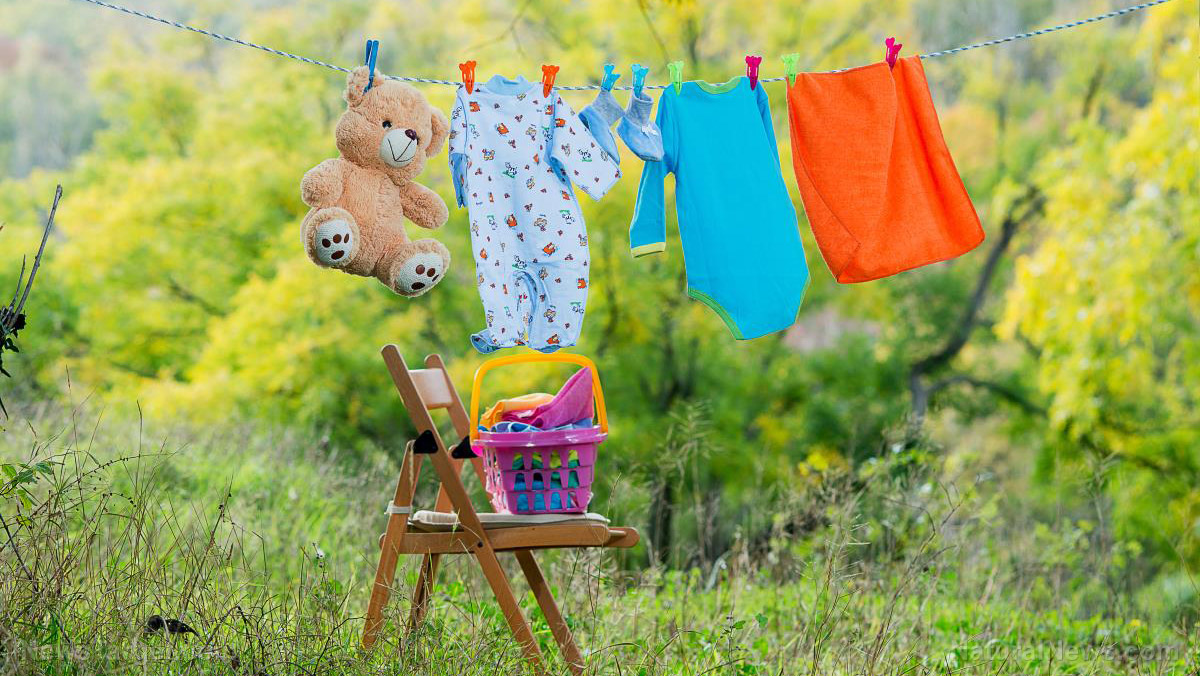Nearly 40 percent of young consumers in America SHUN commercial antiperspirants in favor of “natural” deodorants
02/14/2020 / By Tracey Watson

There was a time when walking around with deodorant-free – and even unwashed – armpits was quite normal. In fact, deodorants were a commercial failure when they were first launched in the late 1800s, with people believing that bathing regularly, avoiding exercise, staying out of the sun and covering themselves in perfume were the best ways to avoid smelly pits.
It was only after advertising campaigns that were both harsh and faintly threatening were unleashed on the American public in the early 1920s, that deodorant sales picked up – and then boomed – until they grew into the multi-billion-dollar market that they are today.
But the market is always changing, and recent research by the organization YouGov indicates that young people are more concerned about products being natural, authentic, organic and chemical-free than they are in smelling great.
In fact, close to half (40 percent) of 18- to 24-year-olds surveyed admitted foregoing deodorant use altogether, along with 31 percent of 25- to 34-year-olds and 22 percent of 35- to 44-year-olds. It was only in the over 45 age group that the vast majority (84 percent) said that they use deodorant regularly. (Related: Aluminum salts found in popular antiperspirant products cause tumor growth.)
You’re a pretty girl, Mary, but … you smell!
The obsession with hiding how we really smell took off in earnest after marketing campaigns by unscrupulous advertising executives basically shamed people into imagining that they would be unpopular unless they used deodorant.
For example, a campaign by infamous copy writer James Young warned young women that if they did not wear deodorant they would repel men, never find love and end up as spinsters.
As reported by the U.K.’s Daily Mail, a quite condescending and threatening 1937 Mum advert warned:
You’re a pretty girl, Mary, and you’re smart about most things but you’re just a bit stupid about yourself. You love a good time—but you seldom have one. Evening after evening you sit at home alone. You’ve met several grand men who seemed interested at first. They took you out once—and that was that. There are so many pretty Marys in the world who never seem to sense the real reason for their aloneness. In this smart modern age, it’s against the code for a girl (or a man either) to carry the repellent odor of underarm perspiration on clothing and person. It’s a fault which never fails to carry its own punishment—unpopularity.
While advertising campaigns directed at women focused mainly on their romantic prospects, those aimed at men, particularly during the Great Depression years, threatened that they would never find jobs again unless they hid their natural odors by coating their armpits in deodorant.
The chemicals lurking in your deodorant
While many so-called “experts” would argue otherwise, several studies have linked the use of deodorants – in particular, antiperspirants – to the development of cancer.
Harmful chemicals are easily absorbed through the skin, and deodorants are jam-packed with such chemicals.
Natural News previously reported:
Aluminum compounds used in deodorant to prevent our pores from sweating can interfere with the body’s natural sex hormones. This may cause breast cancer in women and prostate cancer in men, as well as increase the risk for Alzheimer’s disease in both sexes.
And sweating actually serves some useful purposes, including clearing the complexion, lowering body temperature and warding off sickness.
Fortunately, a younger, smarter generation of consumers has realized that advertising is often nothing but a pack of lies, and these young people are making their own decisions about what personal care products to use, based not on slogans or threats, but on the impact of these products on their health and on the environment.
Learn more about the dangers of aluminum in deodorant at Aluminum.news.
Sources include:
Tagged Under: Advertising, Aluminum, antiperspirant, deodorant, Gen Z, ingredients, natural health, smart consumers, toxic ingredients, young consumers




















